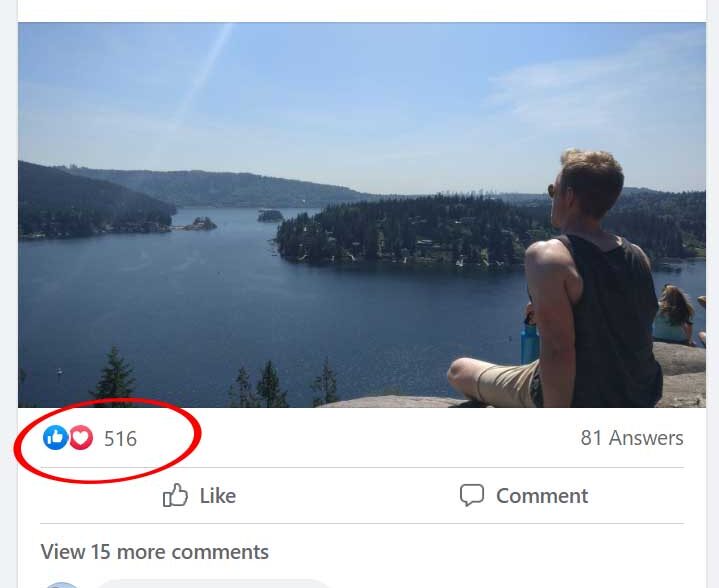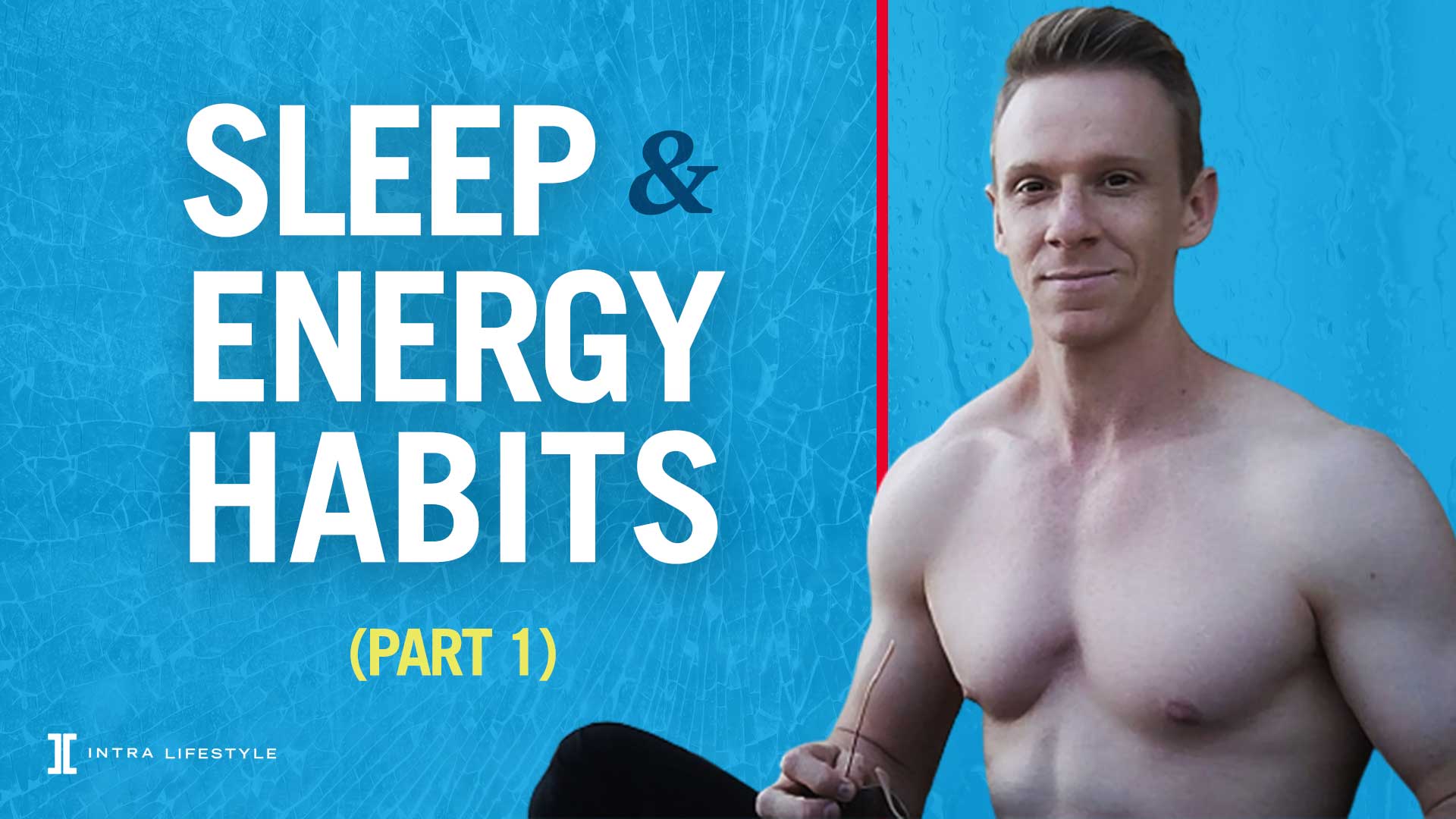The quality of your life will largely depend on the energy you have on a day-to-day basis. One of the best ways we can improve our energy is by modifying our habits and rituals. That’s why today, I want to share with you some healthy habits to boost your energy and improve your sleep. This will be broken down into 2 separate posts.
As I sit down to write this post, the morning sunshine is glaring through the window. Hopefully, you feel equally as relaxed in this moment. Grab a pen and paper (and your favourite cup of coffee or tea) and let’s get to it.
Once you're able to optimize this part of your life, it will have a big impact on all other areas.
Watch the video version here:
(Click here to watch on YouTube)
Recently, I posted some tips in a private Facebook community to help people with their energy and sleep. The post got a lot of love and engagement, so I decided to make a post about it to share with you here.

Five simple ways to boost your energy levels
1. Have a consistent sleep routine
Believe it or not, this is one of the biggest energy boosters that you can implement immediately. It has been a game-changer for me. And there is a good reason for it. Our body has a circadian rhythm and a natural 24-hour clock. This cycle signals to our body when it’s time to rest and when it’s time to wake. Respecting this natural cycle will provide you with more consistent energy.
Your body will adjust to a new schedule or new environment, such as when you travel to a different time zone. That’s why jetlag kicks in. Your body hasn’t quite adjusted to the new time zone. But after a few days, it begins to change and benefit you (no more middle-of-the-night wakeups)
Having spoken with a lot of people and helping my clients with energy management, it's apparent that sleep routines are all over the place. Late-night movies, extended sleep-in’s, social events that keep us up later, or endless scrolling down the rabbit hole of social media in bed at night. The inconsistency with a sleep routine causes havoc on our energy levels.
Recommendations: Find a consistent time that you can go to bed and wake up at the same time each morning. At the very least, try to keep the same wake-up time. Even if you had 1-2 hours less sleep, waking up on time will help you feel more energized. Our body will expect to be awake.
2. Don’t eat right before you sleep
Are you a late-night snacker? If so, this one is for you.
Giving your body a break from digesting food before you 'hit the hay' is important. Your body can get into a deeper sleep and higher quality sleep when it’s not trying to digest food at the same time.
I have tested this many times and can honestly say that, when I eat right before bed, my sleep is much worse. I feel restless, wake up in the night, and don’t wake up feeling refreshed.
Recommendations: Give yourself a 2–4-hour period of time before sleep with no food. You can start smaller and increase as you get used to it. Personally, I stop eating at 7 pm and fall asleep by 10.30 pm each night.
3. Adjust your room temperature
It’s common for us to seek warmth and feel cosy when we go to bed, especially in the winter. However, you will get into a deeper state of sleep with your body at a cooler temperature. And of course, this is going to have varying levels of difficulty depending on where you live. Andrew Huberman discusses this here.
There are some ways that you can make the room a little cooler which is obvious - open the window, use a fan, air conditioning, using blackout blinds, or have less bedding. Some other options would be to try something like a cooling mattress.
Here are some products that you may consider on Amazon.
- Bedside fan (Amazon)
- Chilisleep Cube Sleep System (Amazon)
- Mattress Cooler Classic (Amazon)
- Air conditioning (Amazon)
- Blackout blinds (Amazon)
Recommendations: Depending on where you live, what you have available, and what you may have already tried, here is my suggestion. Track what you are doing and how you are feeling. Try one of the strategies for a week or 2 and note down how you feel in the morning.
Score your sleep out of 10. Monitoring will give you feedback that enables you to make further adjustments. I truly believe it’s worth the effort.
4. Monitor your screen time
Specifically, the screen time during your evenings. I know, I know, it’s not easy to do so. But giving your brain a rest from the glaring screens will help you in so many ways. As we briefly mentioned discussing your biological clock earlier, your body has a natural rhythm that needs to be respected. In the dark, your brain will release melatonin. (A natural hormone) The release of melatonin signals that it’s time for your body to get ready for bed and to relax. Now, can you imagine what happens if you have a glaring screen light in your eyes late at night interfering with your natural cycle?
It’s going to impact your ability to relax and get a good quality sleep. I understand that it’s challenging to completely cut technology out of our lives, and fortunately, we don’t have to.
Recommendations: The best thing to do would be to give yourself a cut-off time for screen usage. When it gets darker outside, that’s a signal to your body that evening time is here. If you want to find some ways to reduce the negative effects of blue light from your devices, you may try the following.
- You can use a free app such as Flux as a white light screen filter in the evenings.
- Use blue light blocking glasses
I use these Swanwick blue light blocking glasses because I think quality matters. If you’re looking for an alternative, you can try these on Amazon.
5. Consider intermittent fasting
Disclaimer: Please do your own research if you are unsure about this or if you have any medical conditions that would require approval from your doctor.
Now that’s out the way, I can honestly say that intermittent fasting has been an incredible strategy for me when it comes to my energy levels. There is a lot of research backing many of the health benefits of intermittent fasting (and fasting in general.)
For those who don’t know what it is, I’ll explain it briefly. Intermittent fasting is simply following an eating schedule that is within a certain time period. This allows your body to have a consistent break each day where no food is being digested. For example, I follow a 16:8 ratio. 16 hours of the day I fast, and 8 hours is my window for eating. Some of these hours are sleeping hours, so it’s not difficult to achieve. I stop eating at 7 pm and start eating at 11 am.
Giving your body a break from digesting food allows you to feel lighter and more energized. I’d describe it as feeling ‘sharper’.
Recommendations: Assuming that you have no health concerns or your doctor has said it’s okay for you to do so, here are some suggestions on how to get started. Pick a time of day when you want to stop eating, and then pick a time the next day when you want to begin eating. Initially, you may want to have a shorter window to get used to it. I find 16 hours of fasting to be quite easy now.
If you want to learn more, I would recommend checking out the following book - The Complete Guide to Fasting. (Amazon)
(You can also get it for free with a 30 day Audible trial here.)
Healthy Habits to Boost Your Energy And Improve Your Sleep (Part 1)
That’s it for part one. If you follow these tips, I promise that they will in some way add to your daily energy and help with your sleep.
Join me shortly for part 2, where I’ll share some other strategies to help you optimize it even further.


